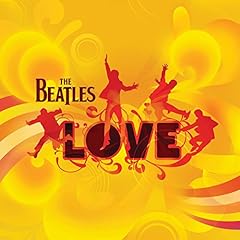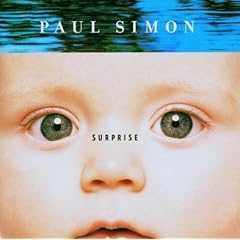Ah, technology!
Coinciding with the release of the NASA report on the Columbia shuttle disaster, U.S. News Online offers what it promises to be a rollicking debate on technology's impact on our lives. The debate is actually an email exchange between, in this corner, representing the neo-luddites, Eric Cohen, editor of The New Atlantis, and, in that corner, representeing the enthusiastic technophiles, Simon Smith, editor of the techie ezine Better Humans. And so far, the debate seems more cordial and gentlemanly than rollickiing. But maybe U.S. News has a different view of rollickingness than I.
This feature will continue over a series of days. Today's just the introduction. It's an interesting introduction to the dilemma, casting the argument around what Cohen describes as the three big problems humans face in our Faustian bargain with technology: "the Brave New World problem, the moral corruption problem and the existential risk problem."
Has technology made the world a better place? Of course it has, Cohen acknowledges. But it's also brought its share of disadvantages to the human condition. "In the end," Cohen writes, "all we can do is admire the great achievements of modern life, realize that modern life is here to stay, and realize that many good things -- not just comforts, but the possibility of living virtuously -- depend on it. But we must also confront and recognize the ways we have lessened, or might lessen, ourselves through our own technological achievements and pursuits."
Ah, yes, Smith responds, but "too many people have a narrow view of history in its arc from past to present to future. Humanity as we know it exists as a blip in time. If we can survive by properly directing science and technology, where we're going will be far more interesting than where we've been."
If we can survive...
I'm looking forward to following this debate, and seeing which side I lean toward.
:: Andrew 09:28 + ::
...
bloggedy blog
bloggedy blog recommends
bloggedy pod (my podcast page)
Independent hotels
in Missouri
eMusic's Power Charts: The Most Interactive Music Charts Online.
In rotation
What I've been listening to lately. Click album cover or hyperlink to hear track samples and learn more.
 Rickie Lee Jones, Sermon on Exposition Boulevard
Rickie Lee Jones, Sermon on Exposition Boulevard
 Patty Griffin, Children Running Through
Patty Griffin, Children Running Through
 Of Montreal, Hissing Fauna, Are You the Destroyer?
Of Montreal, Hissing Fauna, Are You the Destroyer?
 Field Music, Tones of Town
Field Music, Tones of Town
 De Bossen, The Girl Collection
De Bossen, The Girl Collection
 Cold War Kids, Robbers & Cowards
Cold War Kids, Robbers & Cowards

Frida Hyvonen, Until Death Comes

Tratore Basics Vol. 2, Novo Rock Brazil
 Yusuf: An Other Cup
Yusuf: An Other Cup
 The Beatles: Love
The Beatles: Love

The French Kicks: Two Thousand

The Blow: Paper Television

Freedom Haters Unite! A Bloodshot Records Sampler

Swan Lake: Beast Moans

Prototypes: Prototypes

Scanners: Violence Is Golden

Voxtrot: Mothers, Sisters, Daughters & Wives

Voxtrot: Your Biggest Fan

Macon Greyson: Translate

The Evens: Get Evens

Veruca Salt: Veruca Salt IV
 Bob Dylan: Modern Times
Bob Dylan: Modern Times

Pink Tuscadero: Look Your Best

Leigh Nash: Blue on Blue

Yo La Tengo: I Am Not Afraid of You and I Will Beat Your Ass

The Hold Steady: Boys and Girls in America

Bobby Bare Jr.: The Longest Meow"

The Be Good Tanyas: Hello Love

The Lemonheads: The Lemonheads

Ben Kweller: Ben Kweller

The Pipettes: We Are the Pipettes
 Paul Simon: Surprise
Paul Simon: Surprise

Exene Cervenka and the Original Sinners: Sev7en
 Johnny Cash: American V: A Hundred Highways
Johnny Cash: American V: A Hundred Highways

The John Doe Thing: For the Best of Us

The Fondas: Runaway Bombshell

Buzzcocks: Flat Pack Philosophy

Asobi Seksu: Citrus

Tapes 'n Tapes: The Loon

Various Artists: 2006 Pitchfork Music Festival Sampler (24 free tracks)

The Futureheads: News and Tributes

The Bottle Rockets: Zoysia

Camera Obscura: Let's Get Out of This Country

Art Brut: Bang Bang Rock & Roll

Drive By Truckers: A Blessing and a Curse

The Raconteurs: Broken Boy Soldiers

Belle and Sebastian: The Life Pursuit

Cat Power: The Greatest
bloggedy tags
from our sponsors
for your viewing pleasure
24x7
rocketboom
the Richard Show



 Simon Dawes,
Simon Dawes,